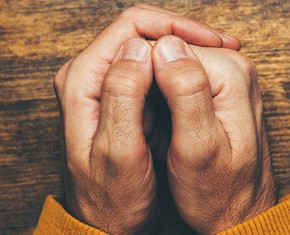The views expressed in our content reflect individual perspectives and do not represent the authoritative views of the Baha'i Faith.
In the 1890s, the Lumiere brothers traveled the world with their early film equipment, capturing brief footage of people in distant countries.
Nickelodeons were opening on the American continent and in Western Europe, where viewers sat spellbound watching such one-minute films. When they watched these pioneering “motion pictures,” they saw a boat traveling down the Nile toward Cairo, street scenes in Jerusalem, Japan, and French Indochina, or two men engaged in an African knife dance. They could see the contrast of the strange clothing, vehicles and behaviors of the more “exotic places,” and the similarities between themselves and people in everyday scenes throughout western European and American cities.
In many ways, those stark contrasts began to define the consciousness of the modern age.
RELATED: Achieving Justice Through the Radical Notion of Oneness
Finding Our Similarities
One of the first steps in logical thinking we learn as children is to sort things that are alike from those that are different, thus learning to find similarities and differences.
Baha’u’llah, the prophet and founder of the Baha’i Faith, suggests that such basic thinking may have been first taught by God’s messengers. He noted that humanity has passed through multiple stages of intellectual and spiritual understanding with the help of religious revelations in their eras, stating, “For were it not for those effulgent Lights that shine above the horizon of His Essence, the people would know not their left hand from their right.”
People in every age reject the messengers of God during their lifetime, and their motives for doing this are our heritage. Baha’u’llah wrote “Whatever in days gone by hath been the cause of the denial and opposition of those people hath now led to the perversity of the people of this age.”
As I look back through history, it strikes me that when a religion becomes dominated by the clergy, those who accept that Faith may begin to buy into the idea that they have a permanent monopoly on truth. As I wonder what Baha’u’llah would consider human perversity, it strikes me that the tendency to perceive certain groups as superior to others would top the list.
Humanity Is One
Apparently, we need to learn the lesson that humanity is one, and unlearn the age-old tendency to perceive differences among humans. As we observe animal behavior, we can see that rabbits are gentle and wolves are aggressive. We can distinguish between them because we know what they look like, which means we can predict how they’ll behave when we approach them. Animals obey their instincts, which makes them “closed systems,” and have no choice but to behave according to their species’ ingrained patterns of behavior.
But this isn’t the case for humans, who have free will to make decisions individually and collectively. As spiritual beings, we’re not confined by nature, but are allowed freedom of choice in our behavior. Thus we’re unpredictable “open systems” – which can make us frightening to each other. The urban North American and European audiences who saw the Lumiere brothers’ first films might have thought, “those people are not like us” as they viewed unfamiliar behaviors that may have surprised or even frightened them.
Many people used to be incapable of grasping some of these truths. However, Baha’u’llah said that humanity is reaching the stage of maturity, and can now comprehend and handle the more advanced spiritual and social teachings Jesus alluded to when he said, “I have yet many things to say unto you, but ye cannot bear them now. Howbeit, when he, the Spirit of Truth, is come, he will guide you into all truth.”
In one of his talks in Paris, Baha’u’llah’s son and successor Abdu’l-Baha said:
From the beginning of human history down to the present time various religions of the world have anathematized one another and accused one another of falsity. … They have shunned one another most rigidly, exercising mutual animosity and rancor. Consider the history of religious warfare. … The Christians and Muhammadans considered the Jews as satanic and the enemies of God. Therefore they cursed and persecuted them. Great numbers of Jews were killed, their houses burnt and pillaged, their children carried into captivity. The Jews in turn regarded the Christians as infidels, and the Muhammadans as enemies and destroyers of the laws of Moses; therefore they called down vengeance upon them and curse them even to this day.
In contrast, Baha’u’llah’s teachings say that we are all spiritual beings who come from the same God.
Our perceived differences derive from the fact that we’ve each grown up in cultures among other people who share similar assumptions. As children we learn our parents’ worldview, and it comes to seem “natural” to us. We continue building our social identity by interacting with others in our shared culture which, along with a shared history, continues to help us form, maintain, and modify our group identity. Our assumptions about reality remain unexamined and unquestioned unless challenged by an encounter with an “other” – that is, with someone we perceive as different. Abdu’l-Baha said:
When the light of Baha’u’llah dawned from the East, He proclaimed the promise of the oneness of humanity. He addressed all mankind saying: “Ye are all fruits of one tree. There are not two trees, one a tree of divine mercy, the other a tree of Satan.” … Therefore we must exercise the utmost love toward one another. We must not consider any people the people of Satan, but know and recognize all as servants of one God. At most it is this: some do not know, they must be guided and trained. ….
The Baha’i Faith enjoins us to observe our spiritual unity, and to deem material differences such as appearance, culture, behavior – even beliefs – as embellishments rather than as fundamental.
RELATED: How Baha’is Believe We Can Achieve World Unity
To do that, the Baha’i principle of the independent investigation of the truth urges us all to examine our values and beliefs and determine what there is about ourselves that is essential and what is relative. In order to feel connected with those whom we perceive as different, we must increase awareness of our own cultural assumptions, as well as an awareness that others have a culture too.
In all of this, we’re free to decide whether we don’t like parts of our own culture – and find the positive elements in other cultures that we might want to emulate, thus building a repertoire of conscious strategies. That we can control such thoughts indicates that we’re not bound by our culture, but have control over the amount of cooperation we wish to extend to our fellow human beings. When that cooperation is driven by a consciousness of our common humanity, it results in love for each member of the human family.
















Comments
Sign in or create an account
Continue with Googleor